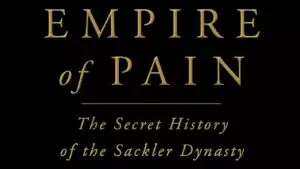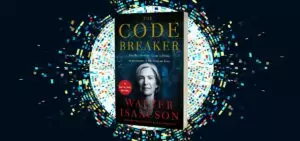By Mike Jakeman

✅ AI Essay Writer ✅ AI Detector ✅ Plagchecker ✅ Paraphraser
✅ Summarizer ✅ Citation Generator
Ilustrado, winner of the 2008 Man Asian Literary Prize and the debut novel by a young Filipino writer, Miguel Syjuco, begins with that most familiar of plot devices: a body in a river. In this case, the corpse is that of Crispin Salvador, a once-celebrated novelist in his native Philippines, who meets his end in the Hudson in New York. His death is most keenly felt by his student, enigmatically also called Miguel Syjuco, who returns to Manila to investigate the cause of Salvador’s death and find his teacher’s missing manuscript, which he hopes will restore Salvador’s reputation.
Despite the premise, Ilustrado is not a literary thriller. Instead, it has wider pretensions in both form and content. Through the narrative of Miguel’s journey home, Syjuco has attempted to write an all-encompassing state-of-the-nation novel. Thus, the travails of the Philippines’ young democracy and its grasping political class form a noisy background to Miguel’s quest. Syjuco’s Philippines is a thrusting, vibrant, and populous place, ‘tangled with good intentions and a tyrannical will to live’. It is also one of vast inequality, a country that in living memory has seen both dictatorship and popular revolution, and is struggling with the value that democracy puts on collective, rather than individual, benefit.
Observers will recognise the fluid allegiances of the novel’s politicians, powerful families, the priesthood, and the media, where relationships are only as strong as the money behind them. The novel’s (fictional) president, Fernando V Estregan, is a thinly-veiled rendering of a former president, Gloria Macapagal Arroyo. Not only does the timing of their administrations coincide, but like Macapagal Arroyo, Estregan bends the will of the Supreme Court to allow him to serve a second term. Similarly, the wealthy Changco family echo the real-life Lopez dynasty. Therefore, the world of Ilustrado is an unsettling place to be: both recognisable and yet unmistakably foreign. The novel references everyone from Hans Blix to Paris Hilton, but alongside these are plausible inventions such Vita Nova, a singer and actress embroiled in a presidential sex scandal, and Wigberto Lakandula, a vigilante security guard turned national celebrity.
Reinforcing this uncertainty is Syjuco’s use of form, which borrows from and modernises the epistolary novels of the 19th century. It consists of a series of short fragments from multiple sources, including extracts from Miguel’s part-written biography of Salvador, blog posts, newspaper editorials, and letters, in addition to Miguel’s own first-person narration and an authorial third-person perspective. Traditionally, the advantage of this technique was the chance to offer multiple views on the same event (and thus cast doubt on the reliability on any or all of the characters). Here, Syjuco is making a different point: by frequently interrupting Miguel’s narrative, he is attempting to show the nature of the modern way of absorbing information, where facts come not from a single trusted source, but from everywhere, in real-time, and without any guarantee of accuracy or reliability. It is a technique that works well in such a lively setting as modern metro Manila.
The great problem with Syjuco’s novel is Salvador himself, who fails to become the equal of Miguel’s labours. An introductory essay promises a rumbustious figure, possessed of sufficient moral vigour to expose police brutality, but enough impish humour to pen an essay titled ‘It’s Hard to Love a Feminist’. Who would not want to resurrect a character that dates Belarussian ballerinas, writes satirical travel guides, upsets the literary community, and flees to New York, supplementing his income by writing trashy thrillers? Unfortunately, the answer is us, as Salvador never truly comes to life. He is less the writer that ‘set Philippine letters alight and carried its luminescence to the rest of the world’ as Miguel promises, and more a self-indulgent hack-of-all trades. When Salvador is given his chance to speak directly—in fictionalised interviews with The Paris Review—he is intellectually obtuse. Worse, the extracts of his novels, the precious things that so inspire Miguel, are only occasionally diverting, and more often are boring.
Ironically, this is not to the detriment of Syjuco as a writer. He is remarkably adept at composing the bad genre novels that Salvador wrote at his lowest ebb, and those torturous interviews with The Paris Review are sufficiently pretentious to be convincing. But he fails to persuade the reader that Salvador was a great writer, leaving the impression that Miguel’s endeavours are misplaced.
Yet despite the failure of the central narrative, Syjuco has written a novel with much to admire. He successfully captures Miguel’s sense of dislocation when he returns to the Philippines from the US (‘I’m like a salmon coming home to spawn, at a point of origin so alien that it feels like my birth certificate was false’), and a scene in which a group of unbearably smug literary critics pull apart Salvador’s work is satire at its most delicious. It also has much to offer in its dissection of the Philippines, a country that is too rarely reported on. But it is also possible that the next corpse to be dragged from the Hudson will have more of a story to tell.
——————
Written under a Creative Commons License, with edits: https://creativecommons.org/licenses/by/1.0/
Follow us on Reddit for more insights and updates.





Comments (0)
Welcome to A*Help comments!
We’re all about debate and discussion at A*Help.
We value the diverse opinions of users, so you may find points of view that you don’t agree with. And that’s cool. However, there are certain things we’re not OK with: attempts to manipulate our data in any way, for example, or the posting of discriminative, offensive, hateful, or disparaging material.